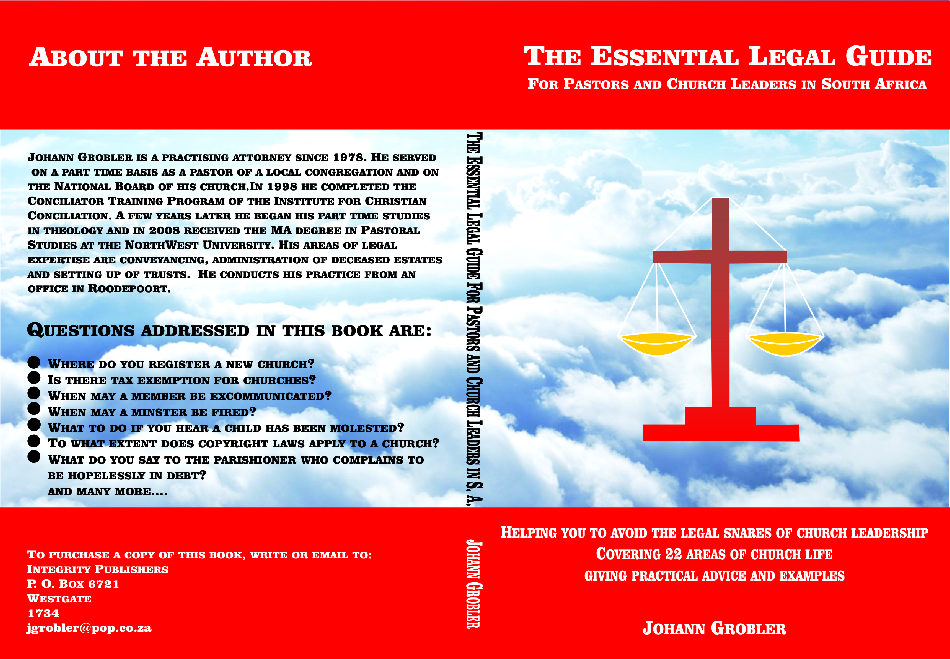THE LAW ABOUT ACCESS TO INFORMATION
“Where can I get information about that business so that I can sue those shysters?”
This is just one typical question about information that people need to enforce their rights.
Access to information is regarded as fundamental to a healthy democracy. Section 32(1) of the
South African Constitution states that everyone has the right of access to any information held by the state as well as any information that is held by another person and that is required for the exercise or protection of any rights.
The Promotion of Access to Information Act of 2000 (PAIA) was promulgated to give effect to the mentioned constitutional right. PAIA is being administered by the South African Human Rights Commission (SAHRC) who should ensure that people can exercise rights in terms of the Act.
A Guide was compiled by SAHRC with handy information for both public bodies and private bodies (businesses) as well as the man in the street, which can be accessed at their website, i.e. https://www.sahrc.org.za/home (look for PAIA SECTION 10 GUIDE).
If you conduct a business, you need to ensure that you comply with PAIA and its regulations. An Information Manual with certain prescribed information must be kept and be available, unless your business has been exempted by the Minister. All private bodies (e.g. sole traders, partnerships and close corporations) are exempt from this requirement until 31 December 2020, but not private companies, unless they have less than 50 employees or their total annual turnover is less than the threshold determined by the Minister, which varies from R6 million to R75 million, depending on the type of business sector.
A lot more can be said about this topic, but hopefully the reader at least has been made aware of this law and its basic objective.
“Where can I get information about that business so that I can sue those shysters?”
This is just one typical question about information that people need to enforce their rights.
Access to information is regarded as fundamental to a healthy democracy. Section 32(1) of the
South African Constitution states that everyone has the right of access to any information held by the state as well as any information that is held by another person and that is required for the exercise or protection of any rights.
The Promotion of Access to Information Act of 2000 (PAIA) was promulgated to give effect to the mentioned constitutional right. PAIA is being administered by the South African Human Rights Commission (SAHRC) who should ensure that people can exercise rights in terms of the Act.
A Guide was compiled by SAHRC with handy information for both public bodies and private bodies (businesses) as well as the man in the street, which can be accessed at their website, i.e. https://www.sahrc.org.za/home (look for PAIA SECTION 10 GUIDE).
If you conduct a business, you need to ensure that you comply with PAIA and its regulations. An Information Manual with certain prescribed information must be kept and be available, unless your business has been exempted by the Minister. All private bodies (e.g. sole traders, partnerships and close corporations) are exempt from this requirement until 31 December 2020, but not private companies, unless they have less than 50 employees or their total annual turnover is less than the threshold determined by the Minister, which varies from R6 million to R75 million, depending on the type of business sector.
A lot more can be said about this topic, but hopefully the reader at least has been made aware of this law and its basic objective.
